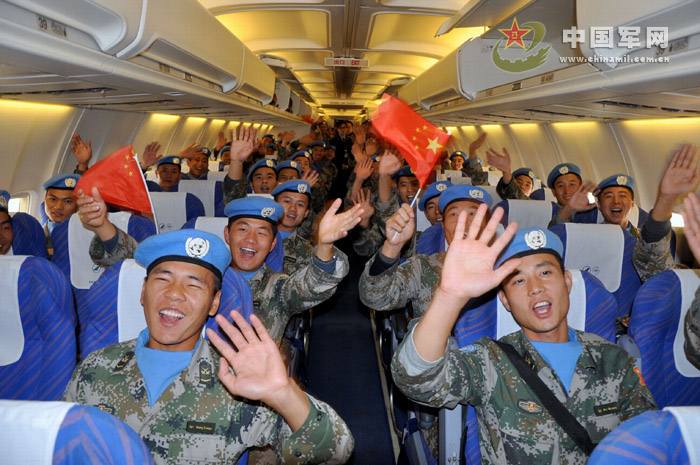China’s Balancing Act With The Two Sudans
The CIP’s J. Berkshire Miller analyzes China’s stake in the current crisis in the South Sudan.
China’s courtship of Africa remains a serious driver of it foreign policy and its push to secure natural resources to feed its export-driven economy. Beijing’s trade with the continent is now double that of US-Africa trade, after surpassing Washington as Africa’s largest trading partner in 2009.(1) Moreover, China provides half of its overseas development assistance to Africa. Despite these numbers, the underlying concentration of Beijing’s interest in Africa remains on natural resources – as evidenced by the fact that it imports over $100 billion annually from continent of crude oil, raw material and other resources.(2) Two of the most significant countries to China in this regard are Sudan and South Sudan – the remnants of an oil-rich country that was partitioned in 2011 after years of conflict. The division of Sudan into two separate countries has resulted in significant policy adjustments that guide Chinese engagement with Khartoum. Beijing remains Sudan’s largest investor with more than $5 billion invested in both countries’ oil field developments. While traditionally focused narrowly on Sudan’s oil reserves, China is now increasingly involved in peace and security issues due to the recent instability in South Sudan.
South Sudan Instability Threatens Chinese Interests
When South Sudan was granted its independence in 2011, Khartoum lost control of a significant amount of its wealth in natural resources. According to a report by the International Monetary Fund, Sudan lost approximately 55% of its revenues after the split. Moreover, Khartoum had to withstand the loss of nearly two-third of its reserves of foreign currency. Juba’s independence has not come without a security cost as well. South Sudan’s ill-equipped military has been embroiled in a violent struggle with armed rebels since securing its independence in 2011. According to last year’s Fragile States Index, compiled by the Washington-based Fund for Peace, South Sudan tops the list as the most vulnerable country and was placed in the “very high alert” category.(3) The most acute areas of concern in the South Sudan now are with respect to the massive flows and refugees and the lack of a stable – and transparent – state security apparatus.(4) There was a short period of calm following Sudan’s partition in 2011, but conflict heightened rapidly in 2013 when disputes broke out between between factions supporting President Salva Kiir and those associated with former Vice President Riek Machar, due to their inability to resolve longstanding disagreements between the ruling party and the army.(5)
The current conflict in Sudan has focused on the sustained unrest in Darfur as well as heightened instability in the South Kordofan and Blue Nile States regions. According to reports from the International Crisis Group, this renewed fighting has resulted in the deaths of 50,000 people and caused the displacement of more than 2 million people.(6) Aside from the significant human catastrophe of the seventeen month long civil war in South Sudan, there also has been a corollary impact on Juba’s significant energy resources and the infrastructure to support them. After years of disagreement, Juba and Khartoum finally agreed in 2013 on a transit fee (to be awarded to the government in Sudan) for the transhipment of oil between South Sudan and Sudan. Despite this, internal conflict in South Sudan then arose and complicated the flow and protection of oil in the country. China, which is traditionally risk-averse when it comes to intervening in conflict zones outside of its borders, has been forced to recalculate its strategy in order to protect is investments as the largest foreign investor in both Sudan and South Sudan’s oil network.
Read more at Al Jazeera Centre for Studies…
Related posts:
Category: AFRICA, FOREIGN POLICY & SECURITY, MIDDLE EAST & NORTH AFRICA, REGIONS, SOUTH ASIA & ASIA PACIFIC


